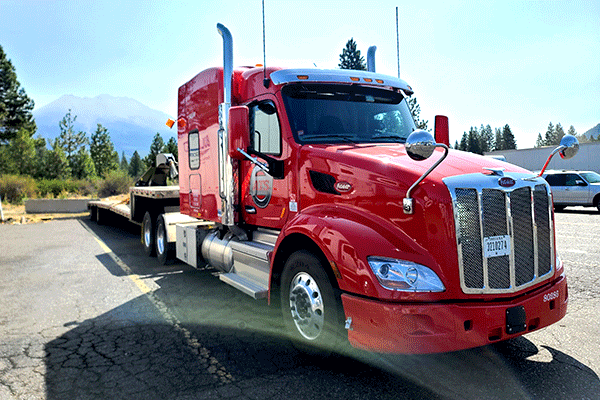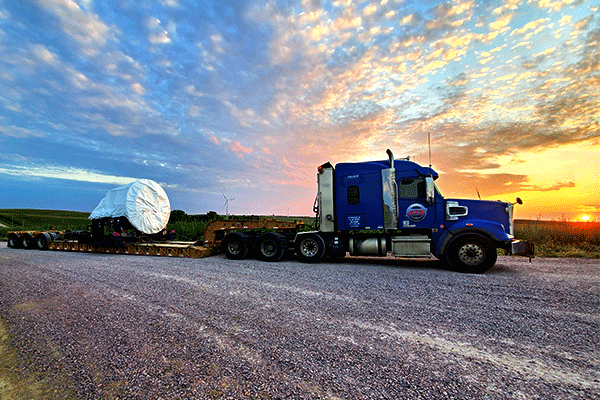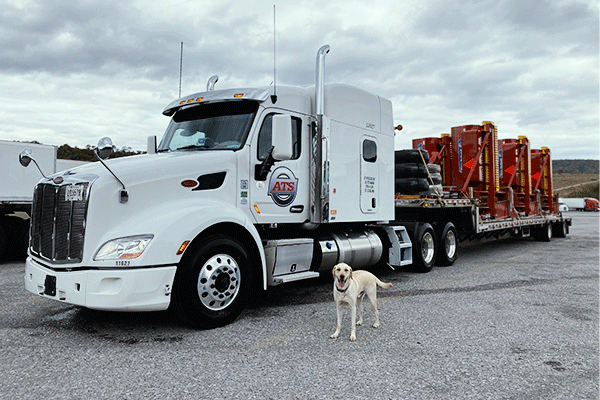Making the best transportation provider selection decision for your business will take more than a basic understanding of your options.
Selecting a single great transportation company can be challenging. Filling your network with them can feel next to impossible.
Choosing a company based on a single metric or quality alone won’t make this any easier. And, with so much at stake for your business and customers, you can’t afford to make too many wrong choices.
Still. . . there are a lot of options to choose from.
From freight brokerages — which come in five major “types” — to asset carriers that come in all shapes and sizes, each provider type boasts a unique list of pros and cons.
Many shippers prefer the truck-in-hand capacity that a good asset company can provide while others look for the exhaustive reach of a freight brokerage partnership.
Either way, you’ll want to match your requirements to the capabilities of the providers you choose.
Here at ATS, we’ve been an integral piece of the United States trucking industry since 1955.
Over the years, as a trucking company, we’ve noticed some essential truths about asset carriers. Truths that don’t necessarily apply to freight brokers or companies with brokerage authority.
The transportation world — freight brokers included — need the drivers that companies like ATS employ and the trucks and trailers they possess. No matter how many freight brokers or third-party providers you utilize, eventually a trucking company — with the ability to physically haul your load — will need to get involved.
That said, asset-trucking companies are subject to a number of realities that other providers — due to their form and function — simply don’t need to account for.
In this article, we’ll outline the five largest disadvantages of working with a strictly asset-based trucking company. Not to deter you from using their services, but to give you the information you deserve; information that will help you maximize your supply chain going forward.
⬇️ Listen to the Podcast on This Topic ⬇️
Discover more ways to listen >
What is an Asset-Based Trucking Company?
Before we begin this discussion, it’s important that we define exactly what type of company these disadvantages apply to. You see, the transportation industry is home to nearly one million asset-based trucking companies.
From one-man owner-operators to carriers with fleets of thousands of assets, trucking companies can vary greatly in size and structure.
Some asset companies, like ATS, hold brokerage authority and work closely with freight brokerages (in the case of ATS this is our sister company ATS Logistics) to meet customer needs as thoroughly as possible. So a definition is important here.
The disadvantages outlined in this article apply to strictly asset-based companies.
These are companies that own a finite fleet of trucks and trailers and have a grouping of drivers under their employ. These asset companies can’t broker their customer’s freight or lean on resources outside of their fleet to meet demands.
In some cases, this limits a carrier’s ability to compete with companies that have a wider reach and more capabilities. Let’s talk about how.
The five largest disadvantages of working with a strictly asset-based trucking company are:
- Asset carriers must put the needs of their drivers first
- Asset carriers typically offer fewer service options
- Asset carriers have a relatively complex cost structure
- Asset carriers prefer to forgo high liability freight
- Asset carriers need to get the most from their assets
1. Asset Carriers Must Prioritize The Needs Of Their Drivers
There is a distinctly human element that comes into play for asset trucking companies. Anytime a business’s main service offering is dependent on the health, wellbeing and satisfaction of a group of workers, this is to be expected.
For carriers, their truck drivers are their livelihood. The success of each driver directly impacts the success of their company. In the interest of keeping their most valuable asset happy under their employment, trucking companies must take steps to accommodate them.
Even if this accommodation comes at the expense of a carrier’s customers and bottom line.
You see, truck drivers are human beings. They like to spend time at home with their families when requested, and haul the freight that they want to haul. They’re interested in making as much money as possible and avoiding loads that make their jobs more difficult.
Sure, trucking companies can ask their drivers to stay on the road longer or take an underpaying load every once in a while but the best carriers work to put the needs of truckers first as often as they can.
For you, this added complexity — which you won’t encounter with a brokerage or 3pl — could impact your rates and timelines. Truck drivers work under a company’s brand based on an expectation of fair treatment and that they’ll be properly compensated for the services they render.
As a result, strictly-asset companies sometimes can’t always price freight as competitively as, or accept the same loads that a third-party provider can.

2. Asset Carriers Typically Offer Fewer Service Options
The capabilities of strictly asset-based companies are finite. Their drivers are located in the areas where they specialize and their service options are limited to whichever trailer types they own.
Unlike a large traditional freight brokerage, most asset-based carriers can’t service every section of the country. Instead, these businesses usually specialize in running freight within a group of regions where their fleet resides.
For this reason, it’s important that you understand the capabilities of a trucking company before adding them to your network. Ask them questions about their trucker domicile and areas of strength.
Some companies are best at moving freight in areas east of the Mississippi while others prefer to service Northwestern states.
What type of commodities do they usually move? and how sizable is their fleet?
The answers to questions like these will give you a firm understanding of whether each company would fit your needs.
Strictly asset-based carriers aren’t able to pick up the phone and find a trucker outside of their fleet to pick up your load. Make sure to do your research.
3. Asset Carriers Have a Relatively Complex Cost Structure
Comparatively speaking, asset-based trucking companies have a far deeper catalog of fixed, variable and overall expenses than third-party providers.
The investment it takes to operate a trucking company massively outweighs the cost of running a freight brokerage. Theoretically, you could open a transportation brokerage tomorrow with nothing but a stable internet connection and laptop computer.
Matching shipments to the appropriate transportation solution and making a bit of margin in the process takes very little up-front investment. Purchasing a fleet of trucks and trailers, employing their drivers, offering benefits packages and paying overhead expenses — among other things — are major pieces of running a trucking company.
For this reason, carriers need to make money from their assets — other provider types don’t face this issue.
This heightened cost structure often makes it difficult for these companies to price services as competitively as their customers would prefer and their competition can.
Keeping the lights on and paying their bills is difficult without pricing their services correctly. As such, if you’re looking for the cheapest transportation solution, you likely won’t find it at a strictly asset-based company.

4. Asset Carriers Like to Forgo High-Liability Freight
In many instances, the carrier charged with transporting high-value cargoes is the party held responsible should an incident occur. A wide array of variables accompany each freight shipment making it risky to haul high-liability freight even with the most cautious care.
Protecting themselves from the possibility of claims should something go wrong with a shipment requires carriers to be properly insured. Without this insurance, a massive claim could potentially cripple a trucking company in a matter of days.
For this reason, many carriers will purchase a set amount of cargo insurance — usually starting at $100,000 — and only haul freight valued within its coverage.
In the end, trucking companies with a set level of insurance and an unwillingness to increase their coverage can’t move all types of freight.
If your business moves a lot of high-value commodities, worth $100,000 or more, an asset trucking company might not be able to meet your needs.
5. Asset Carriers Need To Get The Most From Their Assets
Some of the largest freight brokerages boast networks of hundreds of thousands of trucking companies. This amount of variety and breadth of reach gives brokers the ability to service all kinds of customer demands.
The same cannot be said for many asset companies.
Asset carriers are more like rental companies than anything else. They own a segment of the overall trucks and trailers within a given area and only make money when they’re put to use. After one load delivers, that trucking company needs to find another shipper to move cargoes for.
Whenever a trucking company’s assets aren’t running with freight under them, they aren’t making money.
Additionally, the assets a carrier has “for rent” don’t stop depreciating and the expense of owning them (paying drivers, purchasing fuel, maintenance, etc.) doesn’t decrease while they linger without freight to move.
As a result, asset companies need to be very selective about which loads they accept and which they don’t. They can’t do everything for every customer.
Often, these decisions come down to how much they’re being paid to carry a shipment and whether they have a pre-existing customer base in its destination — which would help them find their next load.
This selectiveness can sometimes come at the expense of an asset-based company’s customers who are relying on them for a solution.
These businesses need to be strategic in how they schedule trucks. Metrics like percent utilization and dollars per day are driving factors for asset companies.
And, if a shipper needs to move freight into an area of weakness for their provider — be it a remote location where their company has few customers — the price of their services will rise.
Companies with brokerage authority that can utilize trucks from a variety of carriers, don’t typically run into these same issues. This makes it easier for them to price a wider array of transportation services more competitively.

How Can You Save Money Going Forward?
Now that you understand the downsides of working with a strictly asset-based trucking company, make sure to take them into account going forward.
That said, these asset carriers also have a lot to offer. And, with a collection of good ones in your corner, coming through for your customers won’t be difficult at all.
Here at ATS, our time in this industry has given us a comprehensive understanding of how it operates. Too often, though, shippers don’t have all of the information they need to make educated decisions for their freight.
To help shippers like you make the most of their interactions with this industry — an industry that can be intimidating — we’ve compiled an extensive list of educational content on the ATS Learning Hub.
Concerning your shipping dollars, this 12-Step Guide to Finding a Truck Faster was created to help shippers save money by appealing to trucking companies in ways they might not have considered.
Download it today and wave goodbye to shoddy transportation agreements and unreliable partnerships going forward.




